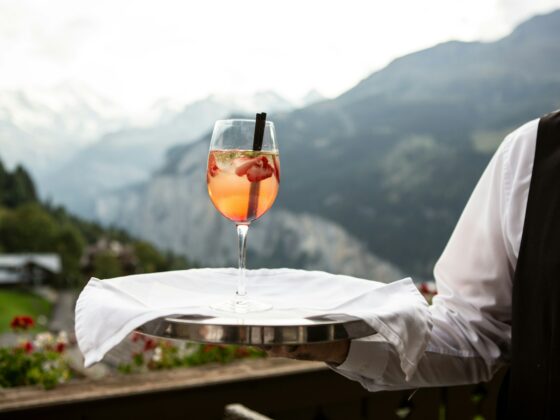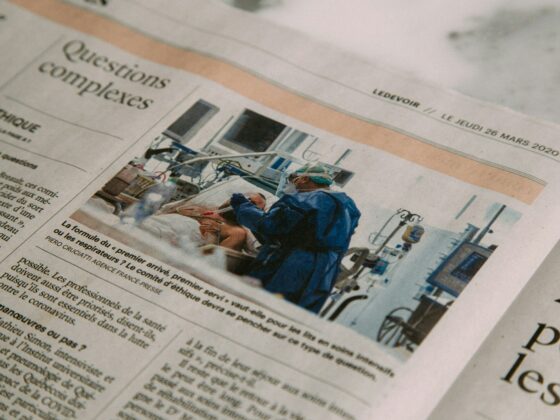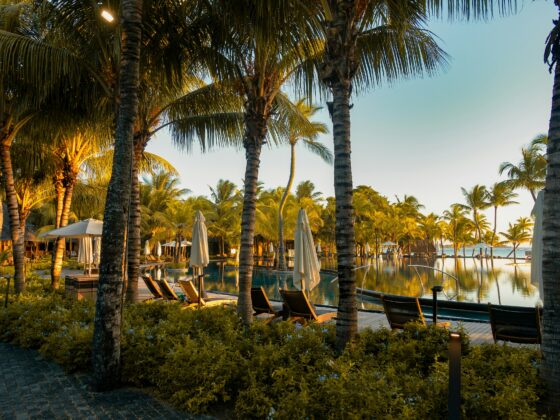Josiah: What do we get wrong when hospitality providers have thought about loyalty in general?
Bashar The very use of the term is bullshit on its own. There is no loyalty. The appropriate term is bribery. Come stay here and I will give you points. And by the way, the owner of the hotel is paying for those points. Ennismore came out with this program called Dis-loyalty because they’re smart and they get it. Sharan Pasricha, the CEO, is a really smart guy. And he says, screw that, there is no loyalty. At the end of the day, it’s bribery. And we’re going to be explicit about the bribery, not implicit, right? We’re going to call it Dis-loyalty. And what we’re going to give you is discounts, free rooms, different tiers of subscription. And the genius in that thing though, is that he’s following sort of his forward thinking about the recurring revenue model, subscription model. Because sure, I’ll subscribe for whatever, 12 bucks a month. I’ll forget about it. It’s on my credit card statement. I won’t see it. And now you got me and you’re giving me value in things that matter to me. Cause a lot of the back to the top tier customers, they don’t give a shit about the points. That’s not what they’re after. Honestly, the only thing I care about in a “loyalty program” is flexibility. Early check-in, late check-out. Those are the things that actually make a difference in my life to make my life simple. Beverly Hills Peninsula Hotel is one of the most coveted service hotels in the country. They did a survey of why you keep coming back here. There are lots of options in LA, obviously. And something like 79% of the people who said we keep coming back said it’s because there’s no check-in or check-out time. When I come in, they figure it out, they get me in. If I want to stay late, they figure it out, then let me check out late. So nobody said points, nobody said any of that stuff. So I think there’s a segment of the market, the crack cocaine point guys and gals, that that’s all they want, fine. And by the way, I am not knocking it, I admire it. Because if you’re a middle-level, on-the-road kind of person, You make enough money to lead a good life, but you really want to take your family on that vacation to Hawaii that you wouldn’t otherwise be able to afford. Good for you. Hoard the miles, get the tickets for free, and get the hotels for free. I am not knocking it. Good for you. But by and large, people aren’t point-driven. They really aren’t. They want to be loyal because they want to feel that they matter. And again, longing for belonging. So again, loyalty is a misused word. It really is bribery at the end of the day. And if that’s what it is, call it what it is and make it count or In fact, create loyalty through, in my opinion, the only way to create loyalty is for me to make you feel guilty about staying anywhere else but with me because you feel I am your home away from home.
Josiah And I think that whole approach is there’s an interesting psychological kind of approach there where you’re kind of bought into the brand and you feel a connection there. I’m really curious to dig into this point just a little bit more in terms of guests who can buy anything or have access to anything. Flexibility is important. I’m curious how you think about this or the value of access to maybe exclusive experiences. Or is there another dimension that hospitality providers can think of that is almost something like you can’t buy and that could be compelling?
Bashar Access, obviously, is hugely valuable these days, right? And you’re starting to see restaurants getting into that business where they literally sell you now a membership, whether through its NFT or something like that. It doesn’t matter what the medium is at the end of the day. And all that gets you, by the way, is the ability to make a reservation, let alone any other benefits. The problem with that world is there are too many other players that have far more sway than you as a brand will or ever will. I can’t compete with Amex, right? They’re going to have the buying power that I couldn’t have because they have however many million users. I feel that maybe localized access, and not access necessarily, but I think of it as the know-how, the secret. Forget the top 10 eater restaurants. Let us tell you about our friend Josiah, who has a fantastic Vietnamese place that no one would ever know about. He doesn’t have a website. I feel that Being my guide to the local market is almost more valuable than being able to get me reservations at Carbone, because like I said, there are too many other people competing for that space. And I don’t think that we as an industry can compete with them. Now, if I’m staying at the Amman in New York and paying four grand a night, which is what it is, by the way. And that one remains outstanding on my list. Shout out, Aman. I’d love to try you out. I would expect that if I wanted to go to a Carbone you could probably get me in, and I’m pretty sure they probably couldn’t. So access is hard just because of all the others that are competing for it. And now restaurants have figured that out on their own. Why give you priority when I can charge someone a fee and keep the revenue myself and I’m full all the time anyway.
Josiah That makes sense. What’s interesting to see is also looking at experiences and creating experiences as potentially another dimension of rewarding top-tier guests. And I think there’s been a number of luxury hotels in New York, for example, that have had something as simple as a picnic experience in Central Park. And it’s kind of funny. It’s like, yes, I could go do this, or I could buy access or get access to a much fancier restaurant. But there’s something about, okay, it’s the Ritz-Carlton picnic experience, or it’s something that is exclusive, maybe. And I wonder if that’s a dimension.
Bashar And to me, that’s the Ritz-Carlton setting up a picnic for me in Central Park. That’s thoughtful and intentional and it makes sense and resonates. The James Hotel or whatever it’s called now in Nomad, telling me that they can take me to a picnic in the Hamptons for the day. Why do I need you? I can do Blade myself and go there and spend whatever, $92 on a latte and $72 on a sandwich and have my own picnic. So I think those two examples, the Ritz is not real, the other one is real, picnic in the Hamptons. The picnic in the Hamptons, and look, I’m guilty, we used to all partake in this. We sit in a room and say, what can we do that’s shock and awe, that gets us PR when at the end of the day, we don’t sell anything. I remember back in the late 90s, early 2000s, the original Ritz-Carlton in Boston had this package where you have dinner for 12 of your friends on the rooftop of the hotel, fully catered, we can stay, blah, blah, blah, blah, blah, all the bells and whistles. And when you show up, you have keys to a brand new Mercedes S-class and it’s yours. No one ever bought it because there was no deal in it. You paid for that Mercedes, right? You could have bought it yourself, but they got PR, you know, the martini with a diamond on the bottom of the glass. Who cares? So those to me are shock and awe. They’re not thoughtful. We had a hotel where we did a divorce package instead of a wedding package. We gave you a bunch of hours with a divorce lawyer, gave you two rooms at the opposite end of the hotel, and a conference room to meditate in. That’s not thoughtful. That’s shock and awe. The Ritz-Carlton example, a hypothetical example of setting you up in a picnic in Central Park and really doing it for you, that’s something hard for you to execute on your own. It’s easier to do it through the Ritz-Carlton experience. So thoughtful, intentional, thoughtful, intentional, thoughtful, intentional. Spare me the shock and awe, we’re over it by now.






